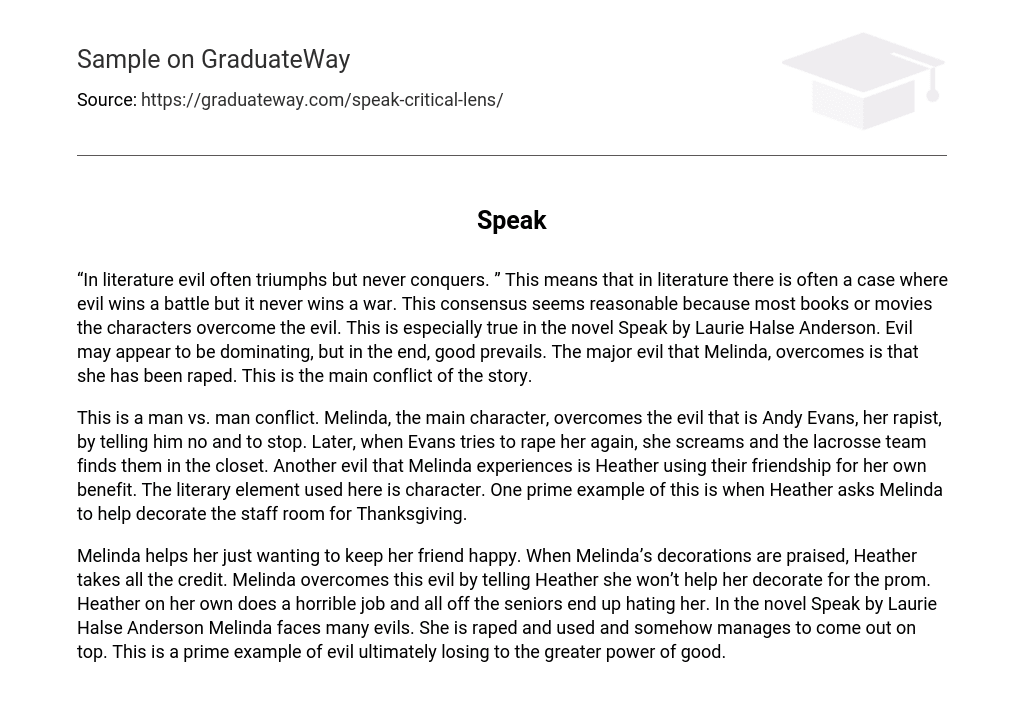“In literature, evil may triumph but it never truly conquers.” This statement suggests that while evil may sometimes achieve short-term victory, it ultimately fails to prevail in the long run. This belief is substantiated by the prevalent occurrence of characters overcoming evil in books and movies. One notable example is Laurie Halse Anderson’s novel Speak. Despite initially being overshadowed by darkness, the protagonist Melinda manages to overcome the major evil she faces: being a survivor of rape. As such, this central conflict drives the narrative of the story.
This is a conflict between two individuals. The protagonist, Melinda, triumphs over her rapist, Andy Evans, by asserting her refusal and demanding him to cease his actions. Subsequently, when Evans makes another attempt to assault her, Melinda screams and is discovered by the lacrosse team inside a closet. Another adversity that Melinda faces involves Heather exploiting their friendship for personal gain. The literary device employed in this situation is character development. A notable illustration of this occurs when Heather solicits Melinda’s assistance in decorating the staff room for Thanksgiving.
Melinda is motivated by her desire to keep her friend happy, which leads her to help with decorations. However, Heather takes all the credit for Melinda’s work. Melinda confronts Heather and refuses to assist her with prom decorations. Heather attempts to decorate on her own but fails miserably, causing the seniors to dislike her. In Laurie Halse Anderson’s novel Speak, Melinda encounters numerous forms of evil. Despite being raped and taken advantage of, Melinda triumphs over these hardships, showcasing how good ultimately prevails over evil.





